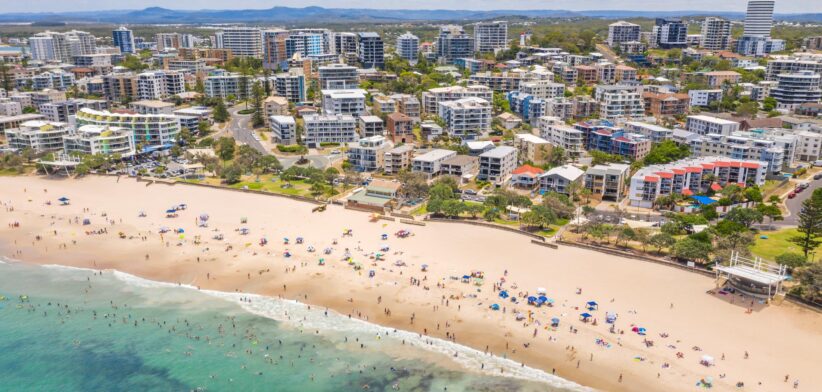The Sunshine Coast has an eye on the upcoming Brisbane Olympics and Paralympics as it looks to attract more luxury hotel brands to the region.
Sunshine Coast Mayor Rosanna Natoli said the area needed to encourage and incentivise the development of four- and five-star hotels.
Mayor Natoli said four-star hotels currently accounted for 34 percent of the region’s accommodation, with five-star offerings making up only one percent.
She said the right mix of accommodation was important to capitalise on the Brisbane 2032 Olympic and Paralympic Games.
“The Games are now only eight years away and we are working hard to see more legacy opportunities and benefits come to our region,” Mayor Natoli said.
“Ensuring we can provide accommodation options for the influx of competitors, support staff and spectators is necessary to deliver a successful Games and importantly, these hotels will continue to support our region’s economy long after the Games have ended.
“And while we wait for the throngs of Olympic visitors to hit our shores, our community can enjoy the benefits such as new restaurants and roof top bars.”
Mayor Natoli said a new Accommodation Hotel Incentives Strategic Policy, to encourage the development of upscale hotels (four-star and above), had been approved by Council and offered:
- A waiver of development application fees for code assessable development.
- A reduction in and deferral of infrastructure charges for code assessable development.
- A free personalised case management pre-lodgement service.
- A dedicated development assessment team.
- A waiver of temporary works fees.
“We hope the immediate introduction of the policy signals to industry that Council is serious. We want and need four- to five-star globally branded hotels,” she said.
“We must address the shortfall in serviced visitor accommodation of more than 2000 hotel rooms. Even just two or three upscale hotels would provide a massive boost to our economy.”
Mayor Natoli said every additional hotel was estimated to create 422 new local jobs during construction, 165 new jobs annually and inject $29.5 million into the Sunshine Coast economy each year.
She said the package had been developed in consultation with hotel industry experts.
“These experts have advised that this package would make the Sunshine Coast more competitive among comparable regions,’’ Mayor Natoli said.
“More luxury hotels would complement the Sunshine Coast Airport international runway, which provides a direct gateway to our region, increasing the potential for tourism dollars.
“We need to provide a breadth of accommodation options to suit different needs. About 70 per cent of our current visitor accommodation is self-catering, limited-service apartment accommodation.
“We need to attract more full-service international brands to attract new markets, including international and high-value visitors.”
Visit Sunshine Coast CEO Matt Stoeckel said the main barrier to encouraging thousands more international leisure travellers was the lack of globally recognised four- or five-star hotels.
“For the year ending March 2024, our region attracted 4.2 million domestic and 311,000 international visitors, who stayed a total of 19.5 million room nights,” Mr Stoeckel said.
“What’s more, the Sunshine Coast has huge potential to grow its business, conference and leisure markets if there is greater investment in new and renovated quality hotel developments.”
Fast facts
- The region welcomes more than 4.4 million overnight visitors per year, generating $4.2 billion in visitor expenditure.
- A total of 2450 new hotel rooms are required on the Sunshine Coast over the next decade.
- If the Sunshine Coast was to accommodate five percent of the total number of rooms required by the Olympic community, then the region would require the equivalent to around six to seven new hotels to meet the demand.
- The Sunshine Coast is the third highest visited region in the state behind Brisbane and the Gold Coast.








